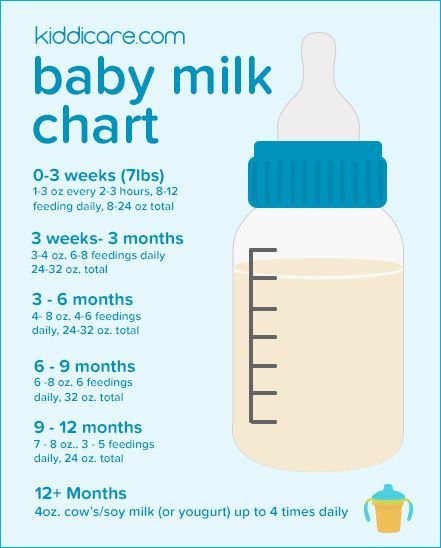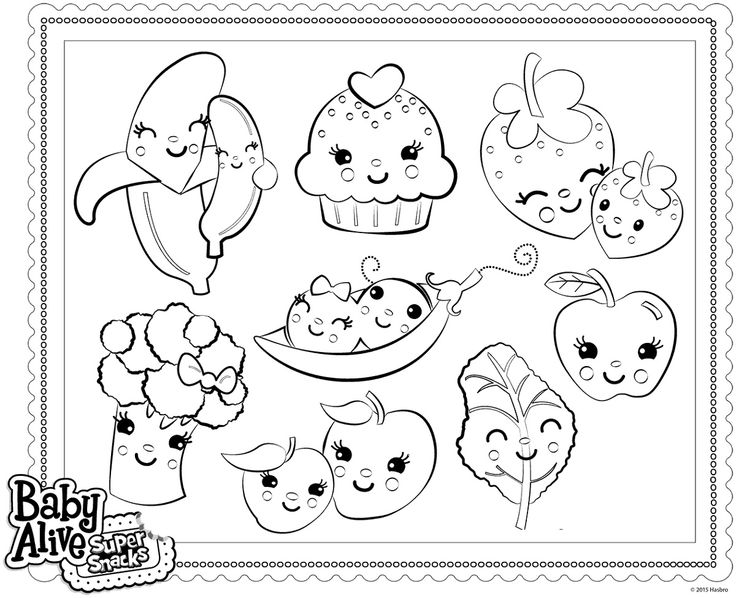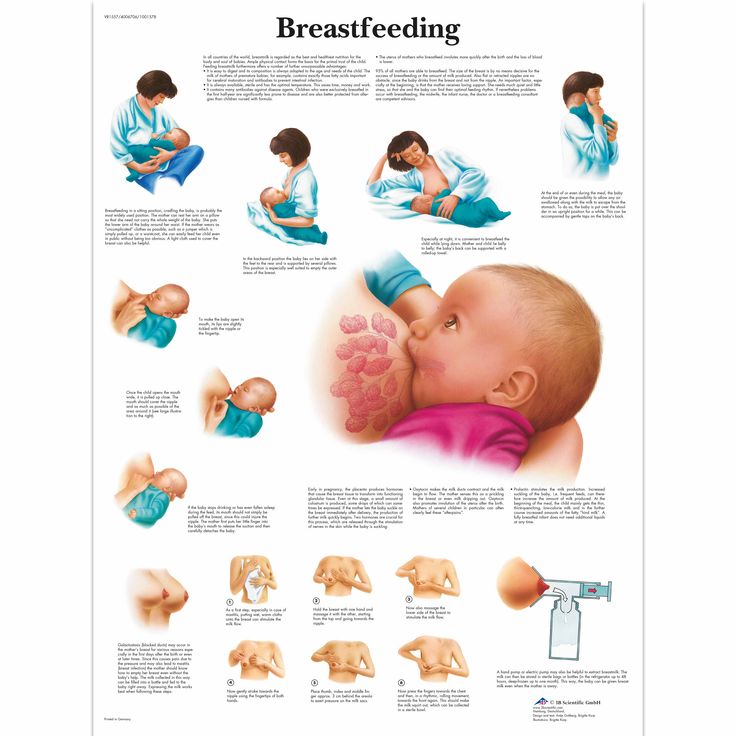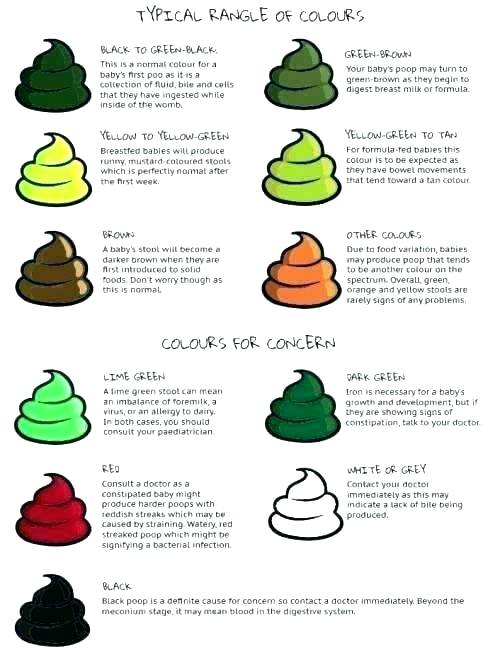Baby cries for food all the time
Do I Have a Hungry Baby, or Is Something Else Going On?
Your little one has three main jobs at the moment: eat, sleep, and poop/pee. After you bring baby home, it might seem like you’re on a constant cycle of feed, burp, and diaper change — because you are!
Babies grow and develop so much that they double their weight in the first 5 months of life. All this growing is exhausting and takes a lot of energy. Babies also need to feed every few hours or so because their tiny tummies can’t hold very much at a time.
Your baby will be hungry a lot of the time, but sometimes they might be squirmy or upset for other reasons. Here’s how to tell whether you need to feed your little angel again, or if they need something else.
In most cases, by the time your baby wails, they’ve been hungry for a while. Crying usually happens late into the hungry stage. Your baby may try to tell you they’re hungry in other ways first.
Signs and signals that your baby is hungry depend on how old (or new) your little one is.
Newborns and babies under the age of 6 months may tell you they need to be fed by:
- putting their hands in or near their mouth
- waving their hands toward their mouth
- turning their head toward mama’s breast (or anyone’s chest area)
- turning toward or looking at a bottle
- puckering or smacking their lips
- clenching their little hands (because they’re trying to not get upset with you for not taking the hint!)
Older babies and toddlers up to the age of two may be more expressive in their signs that they’re hungry:
- pointing at or reaching for food
- getting excited or loud when they see food
- opening their mouth when they see food or are offered some
- gesturing or making noises to let you know they’re hungry
Sometimes it might seem like your baby is hungry and asking to eat, but there’s actually another reason that your baby is giving you the hunger vibe. It’s easy to confuse hunger with the urge to suck.
Sucking is a reflex in the first 6 months of a baby’s life that helps them relax and self-soothe. It may even help your baby sleep better. In fact, a study including 104 babies found those who sucked on their fingers or a pacifier woke less at night and slept for longer periods — music to a parent’s ears!
Your baby may want to suck for the following reasons:
- Comfort. Some babies will want to breastfeed or bottle-feed even when they’re not hungry because they want to sleep or be held. Sucking helps them relax — plus they get your attention!
- Teething. If your baby is teething, sucking and chewing can sometimes help soothe tender gums. Your baby might seem like they want to feed just because sucking helps ease their pain and distracts them from teething frustrations.
- Acid reflux. Some babies with gastroesophageal reflux disease (GERD) may act hungry when they really want to suck to wash reflux back down.
 Overfeeding can make reflux worse, so if you suspect this may be the case, try a pacifier.
Overfeeding can make reflux worse, so if you suspect this may be the case, try a pacifier. - Anxiety. Anxiety in babies is as real as anxiety in children and adults. Some babies may pucker their lips like they’re sucking, squirm, or want to feed because they’re anxious. Both sucking and feeding help some babies calm down or feel more secure.
When your baby is hungry, they might exhibit behavioral cues or signals that are similar to those they show when they’re bored, agitated, sleepy, or upset.
You can help calm your little one by gently holding, rocking, or cuddling them. A baby massage can also help. If your baby makes sucking noises or likes to suck their fingers, give them a pacifier to suck on between feedings.
Help your baby calm down and stop fussing by helping them feel more secure and relaxed. You can try:
- using a soft, quiet voice and tone when you’re talking to your baby
- picking up and handling your baby slowly and gently
- holding your baby so that their arms and legs are tucked in close to their body
- avoiding overstimulation by being around too many people or too much activity at a time
- avoiding TV
- avoiding noisy areas, especially when baby is trying to sleep
- avoiding bright lights during sleep time
- avoiding waking your baby suddenly
- letting your baby sleep when they want to
- waiting until your baby wakes up on their own to feed or change them
Also, avoid “rewarding” your baby for any reason with milk or food. An unhealthy attachment to food can begin as early as when your little one is still a baby.
An unhealthy attachment to food can begin as early as when your little one is still a baby.
If your baby is teething, try putting a teething toy or soother into the refrigerator before offering it to them. Sucking and gnawing on something cold can help your little one.
If reflux is causing discomfort for your little one, try keeping your baby upright for 30 minutes after each feeding and offering a pacifier to soothe them.
Babies need to feed often because they have teeny tiny stomachs. A 4- to 5-week-old baby can only hold about 3 to 4 ounces of milk at a time. This is why babies are ravenous again only a little while after feeding. As babies grow, their stomachs also grow, enabling them to handle more milk.
It’s important to avoid overfeeding your baby. Giving your baby more milk than they can handle at a time won’t make them feel fuller longer. The extra milk will usually come out as vomit, making both of you more upset than when baby was just hangry.
If you’re breastfeeding, your baby will normally stop on their own when they’re full. Alternatively, they might continue latching on but only suck weakly. This is your cue to end the feeding session.
Alternatively, they might continue latching on but only suck weakly. This is your cue to end the feeding session.
If you’re bottle-feeding, its easier to overfeed because it’s natural to want your baby to finish their bottle if there is any formula left. Avoid this by following the general rule of thumb published by the American Academy of Pediatrics (AAP): On average, your baby should get 2.5 ounces of formula per day for every pound of body weight, up to 32 ounces.
You might be tempted to give your baby a few bites of solid food to fill their bottomless pit. Avoid starting your baby on any solid food before they’re 6 months old. The AAP recommends breastfeeding as the sole source of food until 6 months of age.
Trying to feed your baby solid food too early can lead to vomiting, an upset stomach, diarrhea, and even choking.
Even if your baby can stomach solid food, giving it to them too early can lead to overfeeding, weight issues, and other health problems during childhood and beyond.
Once your baby does start eating solid foods, they’ll still need breastmilk or formula. One common saying is, “Food before one is just for fun.” Talk to your doctor about specific nutrition recommendations for your child.
Your baby will go through days or weeks of bigger than normal growth spurts during their first year. Like tiny teenagers, this is when they might be even more ravenous and want to feed more. This kind of feeding is called cluster feeding, and it’s completely normal.
True cluster feeding happens mostly in breastfed babies and helps signal mom’s body to increase milk production. Bottle-fed babies do not generally need to cluster feed.
Growth spurts in babies typically happen when they’re about 3 weeks, 6 weeks, 3 months, and 6 months old. During a growth spurt, your baby will likely cluster feed. This means they might want to feed longer and more frequently.
The time of day when they feel hungriest might also change. Your night owl might suddenly get hungrier and want several feeds in the evening, going on to sleep longer at night.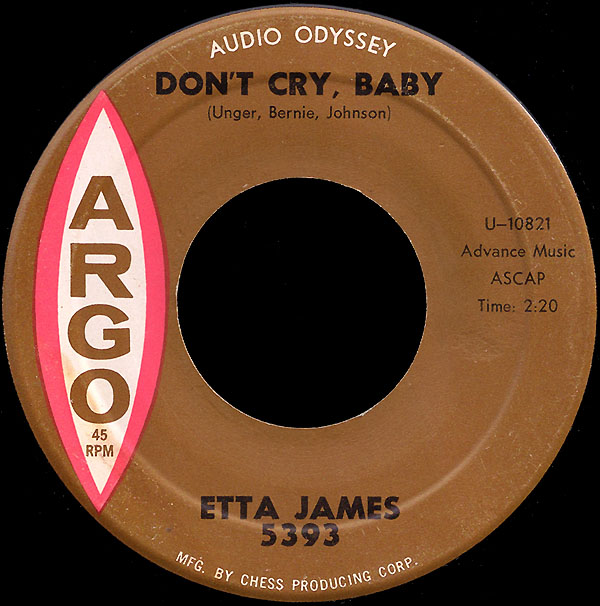 This is welcome news for your sleep-deprived self!
This is welcome news for your sleep-deprived self!
Growth spurts and cluster feedings are different for every baby. They might last a few days or even weeks. You may have to breastfeed or bottle-feed every 30 minutes some days! Don’t worry, your baby will be back to their normal hunger levels once the growth spurt passes.
It may feel like your baby is hungry all the time, but they have a lot of growing and developing to get through in just a year. They also begin life with stomachs the size of an acorn!
However, sometimes your baby might seem like they want to feed when they actually want other kinds of attention from you. You know your baby best, and in time, you’ll learn to understand their cues.
Newborn Constantly Hungry and Crying?
Does your baby always act hungry and unsatisfied, even though he just ate? Learn 5 reasons your newborn is constantly hungry and crying.
You knew babies ate often, but this much?
Your baby eats, but then half an hour later, will start screaming and acting hungry, furiously sucking on his hand. Offering the pacifier doesn’t help—he just spits it back out and keeps crying. He might quiet down for 10 minutes, but starts crying once again.
Offering the pacifier doesn’t help—he just spits it back out and keeps crying. He might quiet down for 10 minutes, but starts crying once again.
Feeding seems to be the only thing to get him to stop, but you’re he’ll end up with a stomach ache (causing him to cry even more). You knew you’d be up all night with him, but hearing him scream the whole time is getting frustrating.
You’re left either feeding him to keep him quiet, or listening to him cry when you don’t.
Newborn constantly hungry and crying? 5 reasons why:
We’ve all been stuck with that predicament: Feed your baby constantly, or hear him cry the entire time. More than once I’ve wondered, He can’t possibly still be hungry, as I fed my baby yet again, so soon after the last feeding.
He’d act hungry even though he just ate, never satisfied with what he had consumed. In fact, he wanted to breastfeed all the time (especially at night), always hungry for his next meal.
Now, I love me a baby who wants to eat, but for the exhausted, sleep-deprived mom, it can feel like you’re literally stuck with your baby all day.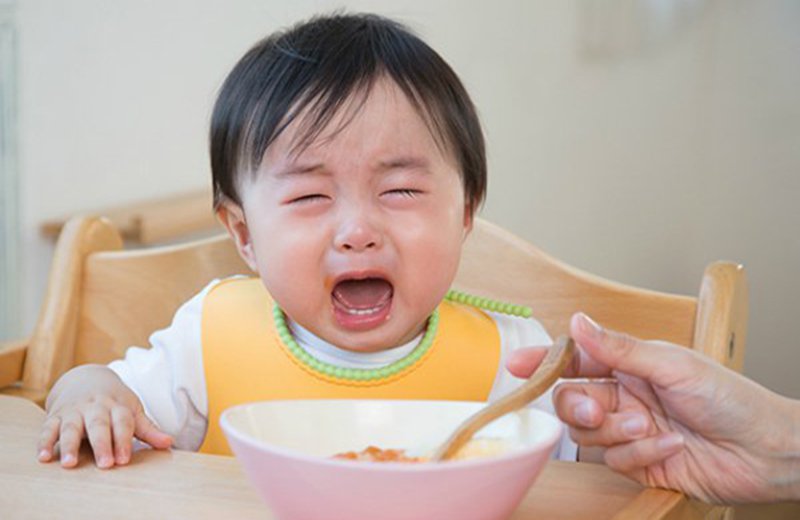
I was either feeding him or putting him to sleep in my arms, because not doing either would incite even more tears. The short bouts of time he was awake—when he could simply be content—seemed few and far between.
But as I learned more about why babies eat so often, I also discovered several tactics I could try. We can’t expect our newborns to take three square meals a day at this point, but we can certainly observe, adjust, and meet their needs along the way.
Take a look at these five reasons your newborn is constantly hungry and crying (and what to do about each one):
1. Your baby is overtired
You’d think that when babies are tired, they’d simply fall asleep right on the spot. But I learned that they can actually feel overtired from being awake too long. Nonstop crying also adds up to even more exhaustion and sleep deprivation.
And since feeding is such a comforting experience, they want to nurse or feed to settle themselves down—even if they had just eaten.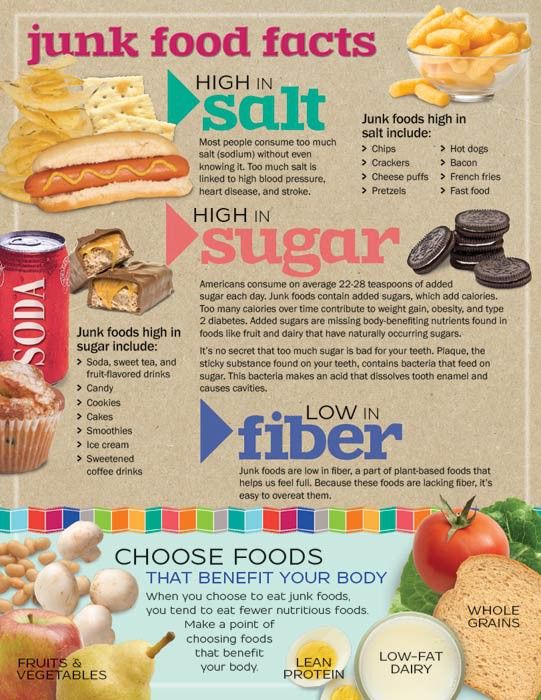
If you suspect that your baby is overtired, help him reset his sleep patterns and catch up on rest. The constant crying is exhausting for him as well, so try to get him to settle down and sleep. For instance, you could:
- Bundle him in a swaddle and rock him to sleep
- Hold him “skin to skin,” with his skin in direct contact with yours
- Put him in the swing for a nap
- Go for a car ride or stroller walk if he tends to sleep that way
Free download: Do you struggle with getting your newborn to sleep? His awake time just might be affecting how well he sleeps or not. Join my newsletter and get my handout—at no cost to you—and discover one mistake you may be making with his awake time.
Don’t make the same mistakes I did—help him fall asleep with this one simple trick! Download it below:
2. Your baby isn’t actually eating
Does your baby still act like he’s hungry, even though you had just fed him 30 minutes ago? Does he begin to root around, or act fussy until his next meal?
But he just ate! you think to yourself.
Or… did he?
If your newborn is constantly hungry and crying for more, it might be because he’s not actually eating while he nurses.
Now, this might not apply so much if he’s taking the bottle, especially when you can measure how many ounces he consumed. But if he happens to breastfeed, you can’t exactly see how much he drank.
Either way, try to keep him awake while he feeds, bottle or breastfed. This ensures that he’s drinking milk and not just sucking for comfort. You could…
- Switch positions often
- Tickle him
- Unbutton or remove some clothes
- Burp him during feedings
- Talk to him
How can you tell if he’s actually drinking (instead of just sucking)? Look at his throat. If he were truly swallowing, his throat would also move as the milk makes it way down. And listen for a swallowing sound, another telltale sign that he’s drinking.
Learn how to tell if baby is hungry or wants comfort.
3.
 Your baby has gas
Your baby has gasAnother reason causing your baby’s discomfort—and therefore the need to comfort feed—is gas. Babies have immature digestive systems, causing them to trap gas or struggle with pushing food through their bodies.
Even though he may not be hungry, your baby feels comfort with feeding (even when he’s not actually eating).
Check with your pediatrician to rule out any significant causes of gas. If you suspect that normal gas is the culprit of his constant hunger and cries, help him relieve these discomforts. You can:
- Put a warm washcloth on his tummy for a few minutes
- Massage his belly gently
- Give him gas drops
- Burp him often
- Feed him after waking up from naps, not before
Learn 14 baby burping tricks that actually work.
4. Your baby is overstimulated
At many family parties I’ve attended, it wasn’t unusual to see a baby being passed around from one person to the next. And sometimes, the baby was fussy and crying, overwhelmed with all the new people and sights he was seeing.
And sometimes, the baby was fussy and crying, overwhelmed with all the new people and sights he was seeing.
We forget how easily stimulated babies can get, and not just in rowdy family parties. You might have run an errand in a loud, new place, or even played with him for long stretches of time.
To keep him from being overstimulated, watch his sleep cues or even the clock so you can put him down for a nap when he’s sleepy. You might want to go in a dark room at the first sign of a yawn, or turn white noise on to muffle sudden sounds from outside.
Keep things subdued, from what he sees and hears to where you go to how much you engage with him.
5. Your baby is going through a growth spurt
I would dart dagger eyes at anyone who suggested that my baby was hungry. As the only one who could feed him, I resented the idea of constantly nursing him every time he cried.
Later, when I had my twins, I learned that feeding on demand is part of the game, and more importantly, a temporary one. Just because you’re cluster feeding your baby, that doesn’t mean it’ll always be like that.
Just because you’re cluster feeding your baby, that doesn’t mean it’ll always be like that.
Follow his lead, especially if you’ve confirmed that he’s actually eating during those feedings. They might seem excessive, but this could be his way to increase your milk supply to meet his growing needs.
Because, at the end of the day, the reason he could be eating so often is simply because he’s hungry.
What to do when your baby is feeding every hour (and not sleeping).
Conclusion
It’s never easy dealing with a newborn constantly hungry and crying, especially when you’re not exactly sure why. And with feeding such a comforting experience, hunger isn’t always the most obvious reason. Hopefully you’ve now seen a few common causes as well as possible solutions to help.
To start, your baby could be overtired, turning to feedings as a way to comfort himself to sleep. Maybe he’s not actually eating, which explains why he’s still hungry even though it seems like he had just eaten. He could also have gas, contributing to even more discomfort as he tries to sleep.
He could also have gas, contributing to even more discomfort as he tries to sleep.
He might be overstimulated from his surroundings, making it harder for him to tune things out and rest. And finally, he could simply be going through a growth spurt, which explains the constant feedings.
No matter the reason, rest assured friend that this isn’t permanent. You’re not always going to be glued to your baby with constant feedings. Yes, he eats often, but soon he’ll fall into a more predictable pattern of eating—and hopefully in stretches longer than 30 minutes.
Get more tips:
- Is Your Baby Nursing for an Hour and Still Hungry?
- Newborn Life: Expectation vs Reality
- 6 Ways to Handle Your Newborn Constantly Feeding
- 12 Things to Do When Your Newborn Fights Sleep
- 4 Newborn Sleep Cues That’ll Help Baby Sleep Longer
Don’t forget: Join my newsletter and get One Mistake You’re Making with Your Baby’s Awake Time—at no cost to you:
The child is often psychotic and capricious
Author: Marfa Goncharova, magazine "My Baby and Me"; consultant: Yulia Andronnikova, pediatrician of the highest category, head of the pediatric department of the Center for Traditional Obstetrics and Family Medicine.
The expressed emotional state of the child is a message of discomfort. Leaving these messages unattended means ignoring the needs of the baby, which can be physical and psychological.
Inconsolable crying, screaming, stubbornness and irritation out of the blue - what upsets parents so much and outrages outsiders who have become unwitting witnesses to an unpleasant scene is usually called whims. In fact, if in an adult a completely unreasonable whim can be called a whim, then children's whims, as a rule, have a serious reason. nine0003
Yulia Andronnikova: "Children under one year old are not characterized by whims in their everyday sense. If a child suddenly starts behaving in an unusual way for him, this is always a signal for his mother, a message of discomfort. No doctor can say for sure: if a child cries for minutes ten - this is normal, and if longer, then this is a sign of illness. Mom's intuition should work here. After all, already in the first 2-3 months of life, being in close contact with the baby, the mother studies him so well that she knows perfectly well what is typical for her child and what goes beyond normal behavior. 0003
0003
If the baby is crying, the mother calms him down with the usual methods that suit him. Children love to be picked up, maintaining skin-to-skin contact, being rocked, talking in a low, calm voice, and being placed on their chest. Someone stops worrying in a warm bath, and someone better to undress for a while. The set of techniques may vary, but if the baby continues to cry despite the usual stress relief rituals, the mother should watch him more carefully. "
Infectious diseases
Unusually prolonged crying for a child or, conversely, lethargy, refusal to eat in children of any age are often the first sign of the development of an infectious disease. Like it or not, it becomes obvious in just a few hours: the temperature may begin to rise, a cough or runny nose will appear. For babies who still can neither say nor show that they are in pain, loud crying can be a sign of otitis media that has begun. If the ears hurt, there may be no fever or other signs of a cold, it is precisely the abruptly changed behavior that will cause suspicion: the child is inappropriately naughty, shakes his head, sometimes screams sharply, starts crying when the position of the head changes, refuses to eat, because it provokes pain. In such a situation, you should definitely call a doctor. nine0003
In such a situation, you should definitely call a doctor. nine0003
Meteosensitivity
The peculiarity of the response of the autonomic nervous system to changing environmental conditions is called meteosensitivity. Training the nervous system and blood vessels of the baby will help to cope with meteosensitivity. Thanks to hardening, the adaptive capabilities of the organism will grow, and the reaction to a change in the weather will become less violent or disappear altogether.
For toddlers, outdoor walks in any weather are the best hardening. Not only a change in pressure, rain, a thunderstorm, but also simply cloudy weather or a long absence of the sun in the sky can affect the body. In newborns, sudden changes in the weather are often worrisome. After a few months, the majority of such meteorological dependence disappears, but in children with a weakened autonomic nervous system, it can continue to manifest itself and even intensify against the background of stressful conditions. nine0003
nine0003
Chronic diseases
But what if the baby not only suddenly changed his behavior, but is constantly in a depressed state - he is lethargic, whimpering all the time and practically does not smile? Yulia Andronnikova: “The general well-being of a child is an important indicator of his health. A healthy baby may start to act up in the evening when he is tired, but he should wake up in a good mood - this is a signal to his mother that everything is in order with him.
If the child is naughty every day and is in a bad mood all the time, and you have ruled out the presence of any infections, it is worth bringing this to the attention of your pediatrician. Constant whims, pallor, lethargy, lack of a smile from birth, low weight gain and height are a set of symptoms characteristic of hormonal disorders. The earlier the diagnosis is made, the better, because with the timely initiation of treatment, the disease can be compensated and the life, health and intelligence of the child can be saved. If such diseases are suspected, the pediatrician will refer the child to an endocrinologist. nine0003
If such diseases are suspected, the pediatrician will refer the child to an endocrinologist. nine0003
Approximately the same symptoms can be with anemia or kidney problems. Routine blood and urine tests will help clarify the situation, confirming or dispelling such concerns.”
Overwork
If a child is naughty in the evening, mothers usually explain it like this: “I didn’t sleep well during the day” or “Went to class, he got too excited talking with other children there.” Perhaps here it will be enough to put the daily routine in order, give the baby more opportunities for rest, sleep and walks. If the child is excitable in itself, cannot sit still, control his emotions, and at the same time gets very tired, pedagogical problems are superimposed on physical ones, since parents literally do not keep up with the baby. A competent neurologist will help normalize the regimen and strengthen the nervous system, for example, with the help of massage and hardening techniques. A psychologist will advise parents about the features of proper communication with the child. nine0003
A psychologist will advise parents about the features of proper communication with the child. nine0003
Caprice as a message to parents
Caprice is always a child's message about discomfort, which he cannot express in an acceptable form. If the child is naughty all the time, and you have excluded physical causes (malaise, fatigue), it is worth considering what state of mind he is in. Psychologists note that often the child's inappropriate behavior is a reaction to intra-family disharmony. The grandmother is unhappy with the way the young mother is raising the baby, she is constantly indignant and gives unsolicited advice. Or parents begin to quarrel every time the baby needs to be put to bed. Explicit or unspoken claims and conflicts, a tense situation in the family most affect the child. In this case, his “whims” are the materialization of the discontent and irritation surrounding him. And the situation can be corrected only by establishing relationships in the family. nine0003
Certain pedagogical disturbances in the family can also easily become a source of whims. If the parents allow the child absolutely everything, and he simply does not understand the word "no", any attempt to prohibit it leads him almost to hysteria. As a rule, parents are afraid of such a reaction and are ready to do anything to avoid its repetition, which means they continue to indulge the baby. And this inevitably deepens discord in the family and makes its members even more irritable. The opposite situation can also involve the whole family in a vicious circle: they behave with the child too strictly and literally stop all attempts to act independently and make decisions. The kid protests, parents become even stricter with him. The same effect occurs if different family members adhere to diametrically opposed parenting styles - for example, mom is very strict with the baby, and dad allows absolutely everything. All these situations are best dealt with by a family psychologist. nine0003
If the parents allow the child absolutely everything, and he simply does not understand the word "no", any attempt to prohibit it leads him almost to hysteria. As a rule, parents are afraid of such a reaction and are ready to do anything to avoid its repetition, which means they continue to indulge the baby. And this inevitably deepens discord in the family and makes its members even more irritable. The opposite situation can also involve the whole family in a vicious circle: they behave with the child too strictly and literally stop all attempts to act independently and make decisions. The kid protests, parents become even stricter with him. The same effect occurs if different family members adhere to diametrically opposed parenting styles - for example, mom is very strict with the baby, and dad allows absolutely everything. All these situations are best dealt with by a family psychologist. nine0003
Struggle for independence
Parents often mistake the child's desire for independence for whims. From 8–9 months, the baby is already beginning to “test the strength” of the surrounding adults. They give him a toy, he throws it on the floor and immediately demands it back. This can be repeated many times in a row. The child finds out the boundaries of what is permitted, and when communicating with mom, dad or grandmother, the boundaries can be different. At the same time, it is quite easy to distinguish the crying of a real need from a “testing” cry: “checking”, the baby sometimes stops crying, looks around and listens in order to evaluate the effect produced. Such stops are a sign of the need for attention to oneself. This does not mean that in this case it should be ignored, it is better to talk softly with the child, give reasonable arguments, explain your actions, including the necessary refusals or prohibitions. Such verbal contact, if established at birth, makes it easier to distinguish what exactly caused unusual behavior, and to cope with the situation. nine0003
From 8–9 months, the baby is already beginning to “test the strength” of the surrounding adults. They give him a toy, he throws it on the floor and immediately demands it back. This can be repeated many times in a row. The child finds out the boundaries of what is permitted, and when communicating with mom, dad or grandmother, the boundaries can be different. At the same time, it is quite easy to distinguish the crying of a real need from a “testing” cry: “checking”, the baby sometimes stops crying, looks around and listens in order to evaluate the effect produced. Such stops are a sign of the need for attention to oneself. This does not mean that in this case it should be ignored, it is better to talk softly with the child, give reasonable arguments, explain your actions, including the necessary refusals or prohibitions. Such verbal contact, if established at birth, makes it easier to distinguish what exactly caused unusual behavior, and to cope with the situation. nine0003
At the age of 2–3 years, the time comes when the child literally answers everything: “I myself!”. Moreover, if attempts to do something on their own are not very successful (spilled, raked, broke, fell), the best strategy would be not to scold the baby, but to celebrate his achievements and offer to bring the matter to the end together. Often, the mere fact of recognizing the child's independent attempts to do something is already enough to live in harmony and reduce "whims" to a minimum.
Moreover, if attempts to do something on their own are not very successful (spilled, raked, broke, fell), the best strategy would be not to scold the baby, but to celebrate his achievements and offer to bring the matter to the end together. Often, the mere fact of recognizing the child's independent attempts to do something is already enough to live in harmony and reduce "whims" to a minimum.
Stubborn facts
- Even if the baby likes to cry in principle, certain conditions should alert parents. These are the so-called emergencies. nine0050
- A child's loud, pronounced cry for two or more hours, in which no ordinary methods of calming help, is a signal to call a doctor. With problems such as intussusception (intestinal volvulus) or appendicitis, a young child may not have any other obvious external signs other than intense continuous crying. Only a doctor can diagnose the problem. It cannot be said that these cases are frequent. If a mother breastfeeds her baby and is well acquainted with the principles of introducing complementary foods, then volvulus, caused by a sharp transition to unfamiliar food in large quantities and at too early an age, does not threaten her child.
 Appendicitis in babies is also rare, but since the exact causes of this emergency are still unclear, it cannot be discounted. nine0050
Appendicitis in babies is also rare, but since the exact causes of this emergency are still unclear, it cannot be discounted. nine0050
Helpful Hints:
- Any inner feelings of a child (enrolling in a kindergarten or school, troubles in the family) can lead to stress. No need to try to protect the baby from difficult situations, but teach him to overcome difficulties. The kid will endure stress much easier if he knows that at home he will always be understood and supported, that for mom and dad he is the best in the world.
Your love and attention are the best "medicines" for stress. Talk with the baby, give him the opportunity to speak out, find out the reasons for the experiences. Play with him, draw, involve him in sports, but try to protect him from excessive loads. nine0003
The article was published in the magazine "My baby and I" (2014) and posted on the website krokha.ru.
👶 all about pregnancy and children
Baby crying before eating!!!
Complain
20 January 2013 18:01 at Personal Journal
Girls, help! We are on IV. Before everything was fine, I ate calmly. And lately, the child cries at first, if you give him a bottle, he doesn’t take it, or he takes it avidly, he can choke and wriggle all over in hysterics. I calm down in my arms and again I offer and we eat everything normally! What could it be? nine0003 0 72139
Before everything was fine, I ate calmly. And lately, the child cries at first, if you give him a bottle, he doesn’t take it, or he takes it avidly, he can choke and wriggle all over in hysterics. I calm down in my arms and again I offer and we eat everything normally! What could it be? nine0003 0 72139
If a child cries while eating
Complain
28 June 2015 18:53 at Personal journal
child quickly and at no extra cost. I will warn you in advance, it turned out to be a lot, it took a long time to read))) First of all, I want to say thank you to everyone who worried about my Stasena, gave me advice, recommended a doctor. Today is the 5th day of our treatment, the CORRECT treatment, and I can almost say with certainty that we are recovering))) the stool has not yet returned to normal completely, but the button is eating without problems. She cries only because she wants to sleep, but cannot))) So, how it all began.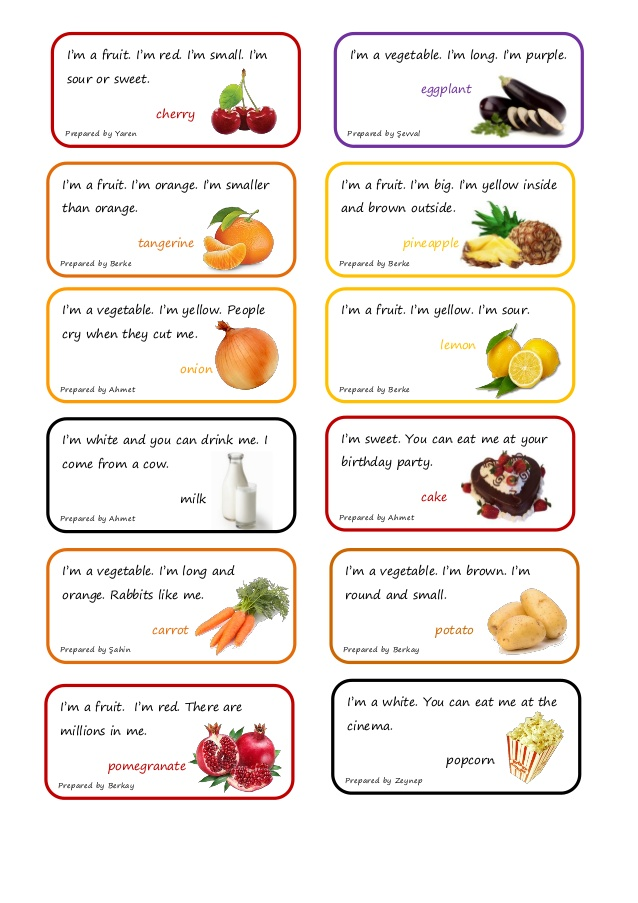 Like most children, my daughter also began to suffer from colic. But in 3.5 months, none of the colic medicines we have been pro...
Like most children, my daughter also began to suffer from colic. But in 3.5 months, none of the colic medicines we have been pro...
Why the baby is crying
Complain
August 31, 2010 13:44 at Baby health and nutrition to hear the cry of his child. When asked why a baby cries, there is a simple answer: crying is the only way newborns can communicate with us adults. In the first month of a child's life, a young mother cannot always determine the causes of the baby's anxiety, but later she will begin to almost unmistakably distinguish even the most subtle shades of his crying. Tips on how to understand why babies cry and what exactly should be done to make the baby stop crying, there is a great many. Sometimes they offer not to approach the baby or even shout at him; someone says…
9 394149What to feed a child for dinner. Food for peace and sound sleep
Complain According to science, dinner should be 20% of the daily diet. But children, especially small children, reshape the daily routine in their own way. Their life is filled with events: educational toys, games, learning “in an adult way” in kindergartens and development schools, and just the buzzing world around. A TV (and who was put to a computer from the cradle), fantasies bursting with a fragile, but already overdeveloped brain, observations, accumulated emotions ... Increasingly, a child cannot be calmed down in the evenings. More and more children do not sleep well at night. The most accessible way for a child to get quick positive sensations is food. Babies “hang” on their chests, older children wake up at night: either kefir or some water ... and mothers break again ...
But children, especially small children, reshape the daily routine in their own way. Their life is filled with events: educational toys, games, learning “in an adult way” in kindergartens and development schools, and just the buzzing world around. A TV (and who was put to a computer from the cradle), fantasies bursting with a fragile, but already overdeveloped brain, observations, accumulated emotions ... Increasingly, a child cannot be calmed down in the evenings. More and more children do not sleep well at night. The most accessible way for a child to get quick positive sensations is food. Babies “hang” on their chests, older children wake up at night: either kefir or some water ... and mothers break again ...
If the baby cries after bathing…
Complain
9 August 2010 16:26 at Personal journal . In particular, she buys items for bathing the baby: a cute baby bath, a thermometer in the form of a funny animal, fragrant baby shampoos and special creams, multi-colored towels with a hood .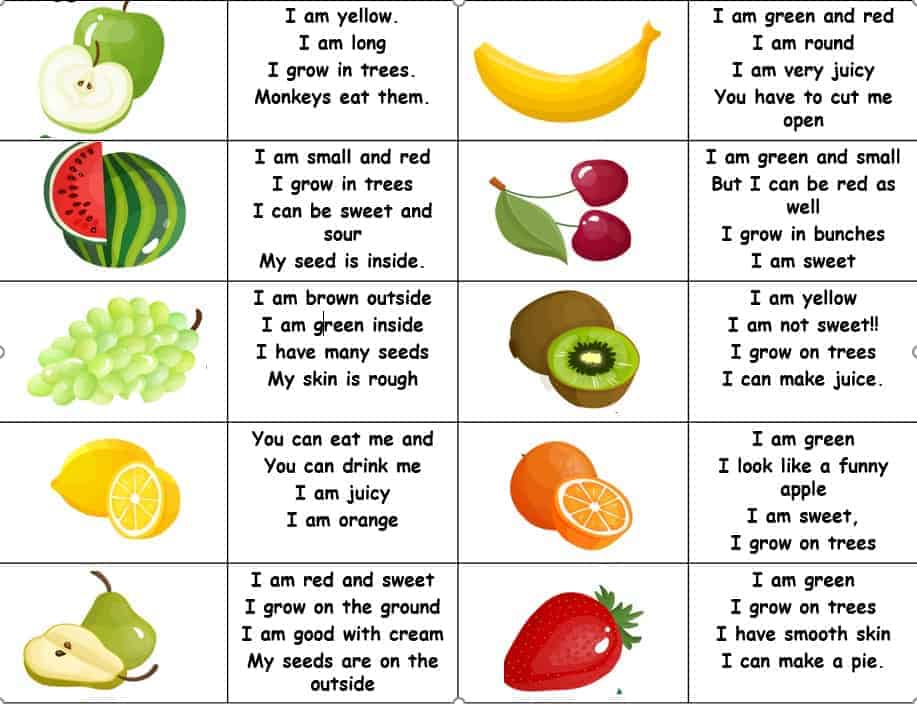 .. She is sure that with such accessories the baby will definitely like the bathing process. And then, when everyone is already at home, it turns out that not everything in life happens according to books: she hears the crying of a child after bathing - once, then the next day, then again and again. And - begins to wonder what is happening? This situation may also arise a few months after…
.. She is sure that with such accessories the baby will definitely like the bathing process. And then, when everyone is already at home, it turns out that not everything in life happens according to books: she hears the crying of a child after bathing - once, then the next day, then again and again. And - begins to wonder what is happening? This situation may also arise a few months after…
Why does the child cry in his sleep?
Complain
June 11, 2012 6:55 pm at Personal Journal
We all know that sleep is the best medicine. They say about a soundly sleeping person, he sleeps sweetly, like a baby. But many mothers know firsthand what sleepless nights are. Consider the reasons why a child cries in a dream. If this is a newborn, then the main cause of poor sleep is colic. After all, if the baby has a tummy ache, then what kind of dream is there. The remedies that doctors and experienced mothers advise for colic can help here: special drops, a warm diaper on the stomach, fennel tea, tummy massage, etc. The next reason for the night crying of infants is the absence of a mother nearby. When the baby falls asleep, he sees his mother, and wakes up in his own bed, it scares him, and he ...
The next reason for the night crying of infants is the absence of a mother nearby. When the baby falls asleep, he sees his mother, and wakes up in his own bed, it scares him, and he ...
The child is crying
Complain
March 11, 2011 20:25 to Personal journal
Every parent is always hard and hurt when their baby cries. If the baby is crying, then he is asking for help. How to help him? invocative cry The child screams for 5-6 seconds, then pauses for 20-30 seconds, waiting for the result. After a while, the baby repeats his attempt to be heard. This cycle is repeated several times, while the period of crying gradually increases until it becomes continuous. What to do? Approach the baby, stroke, gently talk to him or sing a song. Try turning him over, maybe he's just tired of lying in one position. If this does not help, take him in your arms and walk around the apartment with him, but we do not advise you to abuse this, because .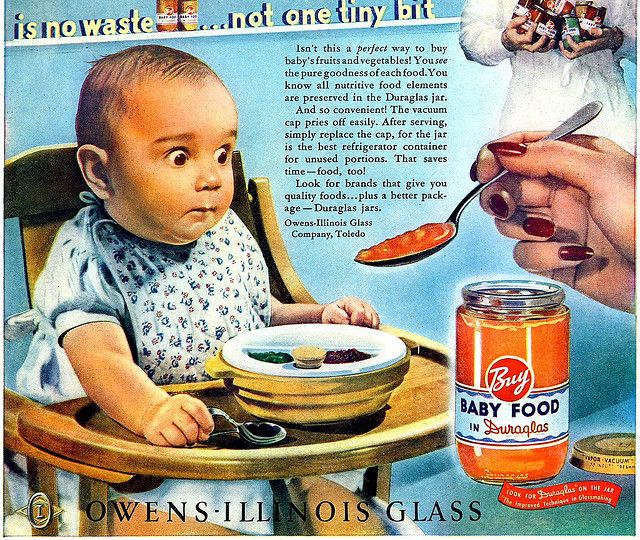 ..
..
Carrying a baby in a "column" post-meal... Advice needed!!!
Complain
January 31, 2013 17:22 at Personal Journal
Girls, we are a week old today ... The question is ... Is it necessary to carry the baby in a column after eating? With me, she falls asleep during feeding, and if I take her in my arms, she wakes up and doesn’t sleep for a long time ... She whimpers and doesn’t rock her in any way ... Sometimes she poops 10 minutes after eating ... Sometimes she spit up ... Sometimes not ... every hour for 30-40 minutes ... Now the second day for 10 minutes ... And falls asleep ... Sleeps for 3 hours ... Maybe she is malnourished because of her tummy? there are gaziki and sometimes even cries before going to the toilet ... she was on the mixture for the first 4 days in the maternity hospital, plus milk came on day 3 ... why are you worried ... how was it with anyone? nine0003 0 3213130
The child does not eat well
Complain
4 August 2016 18:19 at Personal journal
Hello everyone! She introduced complementary foods, she eats mashed potatoes well, in the morning and before going to bed I feed her with a mixture! From the age of 3 months, I eat with tears, I have already tried everything and change the mixture and give it not hot, the pediatrician says that everything is fine with us, but why then does the child constantly cry before eating !? I feed in 4 hours! Maybe someone had it!? what to do?
1 18111How not to cross the line in feeding or why does a child refuse to eat?
Complain
29 January 2015 16:54 at Personal Journal
It started again.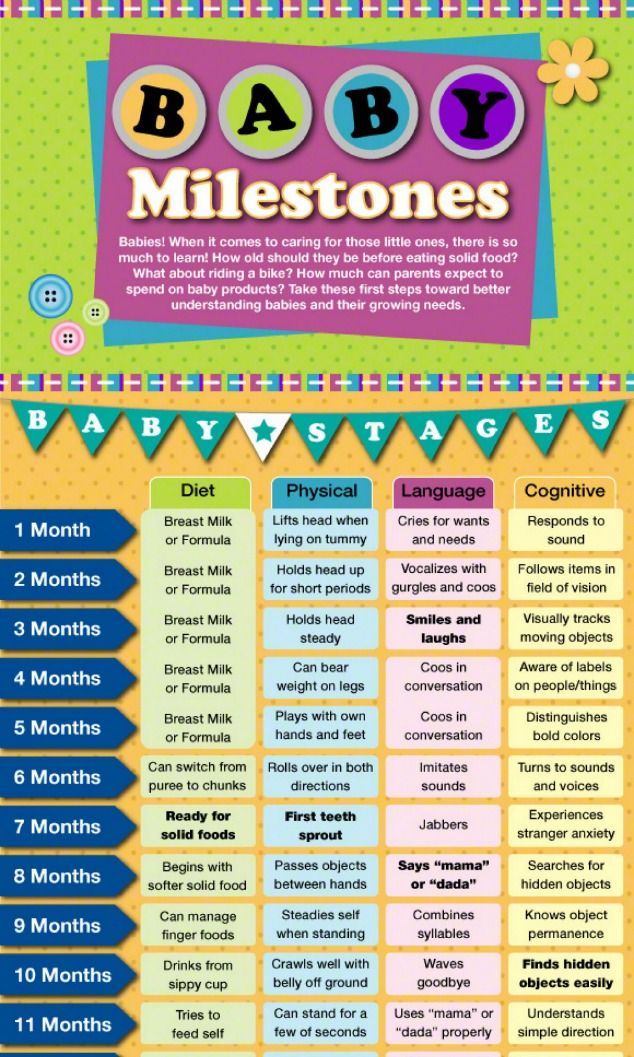 .. My daughter refuses to eat. Even when I just put a spoon to her mouth, she doesn't even try. Maybe it's a reaction to the teeth. But already doubts - suddenly this is from the fact that I force her to eat. Here's how to understand? How to feed so that the child remains interested in food? We eat porridge and tea with cookies (sometimes) in the morning, soup for lunch, cottage cheese or fruit for an afternoon snack, porridge for dinner (this is literally before going to bed. Early in the morning in a dream - breast milk, at night and at night - too. I don’t give any snacks between meals. The only thing I sometimes give before morning sleep is a little fruit puree. After that, she sleeps for an hour and a half. And we don’t eat immediately after she wakes up, but after half an hour. When she eats, I entertain her in every possible way. ...
.. My daughter refuses to eat. Even when I just put a spoon to her mouth, she doesn't even try. Maybe it's a reaction to the teeth. But already doubts - suddenly this is from the fact that I force her to eat. Here's how to understand? How to feed so that the child remains interested in food? We eat porridge and tea with cookies (sometimes) in the morning, soup for lunch, cottage cheese or fruit for an afternoon snack, porridge for dinner (this is literally before going to bed. Early in the morning in a dream - breast milk, at night and at night - too. I don’t give any snacks between meals. The only thing I sometimes give before morning sleep is a little fruit puree. After that, she sleeps for an hour and a half. And we don’t eat immediately after she wakes up, but after half an hour. When she eats, I entertain her in every possible way. ...
How to teach a child to eat normal food?
Complain
February 19, 2016 09:18 at Personal Journal
Asked this question and went to look for an answer to it) I got into the search on the site, found a similar question and went to read the comments.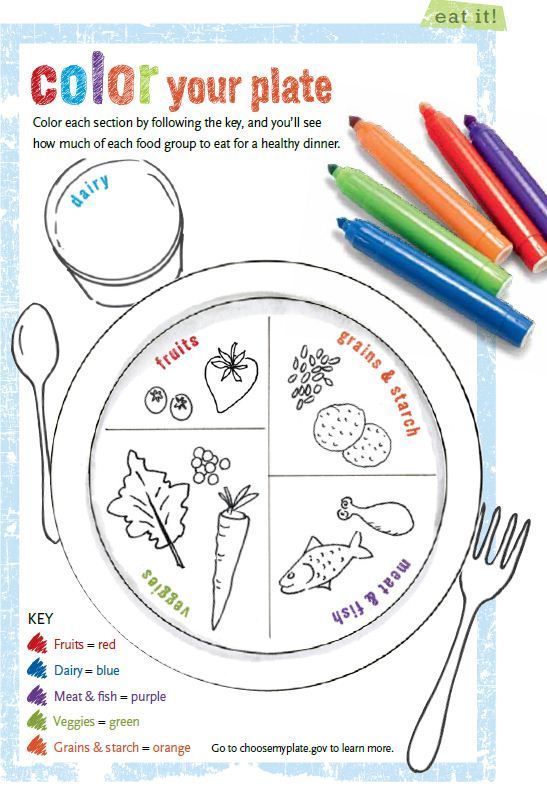 And here is one mommy who wrote the answer very well and in detail, for which many thanks to her http://www.baby.ru/u/usr832245/! I share with you, girlfriends, maybe her advice will also be useful to someone, they helped us - now we eat with pleasure! ))) “I observed this in the daughter of a close friend. When she cooked and served food to her one-year-old baby, she kept saying "she won't eat now" and so on. She did this, turning not to the baby, but to her husband or simply to herself, but the child notices everything and shakes her mustache. Mom's face expressed the emotions corresponding to the phrase. Then next…
And here is one mommy who wrote the answer very well and in detail, for which many thanks to her http://www.baby.ru/u/usr832245/! I share with you, girlfriends, maybe her advice will also be useful to someone, they helped us - now we eat with pleasure! ))) “I observed this in the daughter of a close friend. When she cooked and served food to her one-year-old baby, she kept saying "she won't eat now" and so on. She did this, turning not to the baby, but to her husband or simply to herself, but the child notices everything and shakes her mustache. Mom's face expressed the emotions corresponding to the phrase. Then next…
why the baby is crying
Complain
September 20, 2010 09:03 am at Personal Journal
Young children often cry. They cannot say what worries them, what they lack, but only cry about their suffering or inconvenience. Their crying is an innate unconditioned reflex, which is a signal for help. There can be many reasons for crying, and understanding them is not easy. However, parents should try to show conjecture and ingenuity in this matter, especially since, depending on the reasons, crying has different shades. Crying can serve as a signal of discomfort experienced by the baby. If you use reusable diapers, then the child will cry to notify the parents that the diaper is already wet and irritates his skin. Crying about this whimpering, incessant, although it sounds now stronger, then ...
There can be many reasons for crying, and understanding them is not easy. However, parents should try to show conjecture and ingenuity in this matter, especially since, depending on the reasons, crying has different shades. Crying can serve as a signal of discomfort experienced by the baby. If you use reusable diapers, then the child will cry to notify the parents that the diaper is already wet and irritates his skin. Crying about this whimpering, incessant, although it sounds now stronger, then ...
The son cries before and during sleep. Why is this?
Complain
26 July 2015 15:22 at Personal Journal
My son has been crying for 3 weeks, he is 1.4 years old. I went to the pediatrician, he said - teeth, but she has teeth for everything. A woman of very narrow mind. In the teeth - our upper painters got out 2 months ago, there are no lower ones yet, but the gums are ready. I think if crying from the teeth, then the child would eat badly, but with an appetite normally. I don't notice any other deviations. I called neurologists - they have a tight record until the end of August, then they go on vacation. Don't get hit. We went to one old woman healer, she used to help us out (with her daughter), but now she has lost a lot, she doesn’t even see her face, she confuses the words. Did not help. We were baptized yesterday, we slept well at night. But this afternoon, again, the roar before a daytime sleep, and in a dream everything cries. Let's go have some tea, again...
I don't notice any other deviations. I called neurologists - they have a tight record until the end of August, then they go on vacation. Don't get hit. We went to one old woman healer, she used to help us out (with her daughter), but now she has lost a lot, she doesn’t even see her face, she confuses the words. Did not help. We were baptized yesterday, we slept well at night. But this afternoon, again, the roar before a daytime sleep, and in a dream everything cries. Let's go have some tea, again...
Baby cries while feeding. I hope my entry will help someone
Complain
27 February 2014 23:59 at Personal journal
this sometimes happens and is called breast rejection. I just want the mothers who read this post not to despair and continue to breastfeed. And also a few points that helped me. Actually, it's creepy. If you want to feed a child, you just put him on a feeding pillow in your arms, turn your head, and he yells and doesn’t calm down. I don’t know how this started, I don’t know. Perhaps because we were in the country (change of scenery) or why ( the nipple got into my mouth, but for some reason it seems to me that this is not the same reason), but the situation grew like a snowball, worse and worse. I read a lot ...
I don’t know how this started, I don’t know. Perhaps because we were in the country (change of scenery) or why ( the nipple got into my mouth, but for some reason it seems to me that this is not the same reason), but the situation grew like a snowball, worse and worse. I read a lot ...
Why does the baby cry while eating?
Complain
June 17, 2013 01:35 am at Personal Journal
Cooking not like a master chef, but good! Always before I give food to my son and check the taste of it a hundred times, and for hot / cold, and so on and so on ... It’s already been a day that we don’t eat anything except sissy normally, everything I cook for him (soups, purees, cereals ) eats with a cry and before he has time to put a spoon in his mouth, she goes there with her hands ... two or three spoons will still pass normally, and the rest with difficulty, barely ... what to do? the child needs to eat something .. . sometimes I even stop feeding, my nerves can’t stand it, I finish eating myself, and I give him a boob and that’s it ... I’m at a loss ....
. sometimes I even stop feeding, my nerves can’t stand it, I finish eating myself, and I give him a boob and that’s it ... I’m at a loss ....
What to do when such a small child cries? I'm confused!
Complain
February 21, 2013 18:30 at Personal Journal
The entire Internet turned upside down! Who says: already begin to educate and let you cry, who says: you need to calm down in all ways! I already know by crying when my baby is in pain or wet, but I know when she is just naughty! And this is always before going to bed, she wants to sleep, starts to whimper, then it turns into a roar, you take her in your arms, she starts to cry even harder, and now I go to shake her. During the day we live exclusively on our hands (eat, sleep, walk), rarely, when she is interested in something, and then she lies on the couch and looks, talks, but no more than 10-15 minutes. At night we sleep in a bed. Girls, how are you? What to do? nine0003 0 20558
A very long, but quite informative and useful article on how to teach a child to fall asleep on their own described in the book "SLEEP QUIETLY" (FATE LA NANNA), Part One. Polina Gelfreich's retelling What to do if your baby starts to burst into tears as soon as you say it's time to go to bed? What to do if your baby wakes up 5-10 times a night? What to do if it seems to you that the child sleeps too much or too little? Answers to all these questions are given in his book by the Spanish doctor Estiville, a specialist in sleep disorders. All examples in this book are taken from real life. The author of the book is a renowned professor at the Barcelona Center for Research and Treatment of Sleep Disorders. CHAPTER 1 The child does not sleep, respectively, we do not sleep either. What happens to those who don't get enough sleep?…
Polina Gelfreich's retelling What to do if your baby starts to burst into tears as soon as you say it's time to go to bed? What to do if your baby wakes up 5-10 times a night? What to do if it seems to you that the child sleeps too much or too little? Answers to all these questions are given in his book by the Spanish doctor Estiville, a specialist in sleep disorders. All examples in this book are taken from real life. The author of the book is a renowned professor at the Barcelona Center for Research and Treatment of Sleep Disorders. CHAPTER 1 The child does not sleep, respectively, we do not sleep either. What happens to those who don't get enough sleep?…
I liked the article. though now I don’t think that everything will work out right away in practice. the child is not a robot after all AdRiver Journal → For those parents who want to sleep peacefully at night, everyone is here!!! • Kristina For those parents who want to sleep peacefully at night, everyone is here!!! (found an interesting article) here, I decided to copy myself: “Dear moms !!! With those who do not know and have not read this article, I decided to share it! EVERYTHING HERE IS WRITTEN PERSONALLY ON YOUR BABY IS CHECKED, WORKS!!! From 5 months we sleep peacefully ourselves without feeding, sobs from 9evenings until 7-8 am!!! During the day, we also sleep 2 times without whims according to this scheme !!! Except in cases of illness, when the baby has a temperature, he sleeps as and when he can. The most important thing is to read everything carefully and follow the instructions clearly !!! Good luck and good sleep!…
The most important thing is to read everything carefully and follow the instructions clearly !!! Good luck and good sleep!…
how to teach a child to fall asleep by himself… help!!! The child does not sleep, respectively, we do not sleep either. What happens to those who don't get enough sleep? A child is not a machine, and when you are discharged from the hospital, you are not given instructions for him, as, for example, when buying a washing machine. Then everyone starts giving advice to parents (relatives, friends, neighbors, etc.), especially if they hear the baby crying. Many say: "We must wait out the first months, then she will sleep like all children, where will she go." Many come up with reasons: at first he does not sleep, because he is too small, then because of his tummy, then because of his teeth, etc. Some give advice: “Leave crying, in the end you yourself ...
1 194125How to teach a child to fall asleep on his own?
Complain
19 January 2013 16:29 at Personal Journal 2 days ago I found an interesting article on the site, in my opinion an excerpt from a book on how to teach a child to sleep on his own in 1 week. Anyway, here is the article. I wish everyone PATIENCE!!! CHAPTER 1 The child does not sleep, respectively, we do not sleep either. What happens to those who don't get enough sleep? A child is not a machine, and when you are discharged from the hospital, you are not given instructions for him, as, for example, when buying a washing machine. Then everyone starts giving advice to parents (relatives, friends, neighbors, etc.), especially if they hear the baby crying. Many say: "We must wait out the first months, then she will sleep like all children, where will she go." Many come up with reasons: at first he doesn’t sleep, because ...
Anyway, here is the article. I wish everyone PATIENCE!!! CHAPTER 1 The child does not sleep, respectively, we do not sleep either. What happens to those who don't get enough sleep? A child is not a machine, and when you are discharged from the hospital, you are not given instructions for him, as, for example, when buying a washing machine. Then everyone starts giving advice to parents (relatives, friends, neighbors, etc.), especially if they hear the baby crying. Many say: "We must wait out the first months, then she will sleep like all children, where will she go." Many come up with reasons: at first he doesn’t sleep, because ...
How to teach a child to fall asleep on his own?
Complain
28 November 2013 17:01 at Personal Journal 2 days ago I found an interesting article on the site, in my opinion an excerpt from a book on how to teach a child to sleep on his own in 1 week. Anyway, here is the article. I wish everyone PATIENCE!!! CHAPTER 1 The child does not sleep, respectively, we do not sleep either. What happens to those who don't get enough sleep? A child is not a machine, and when you are discharged from the hospital, you are not given instructions for him, as, for example, when buying a washing machine. Then everyone starts giving advice to parents (relatives, friends, neighbors, etc.), especially if they hear the baby crying. Many say: "We must wait out the first months, then she will sleep like all children, where will she go." Many come up with reasons: at first he doesn’t sleep, because h ...
What happens to those who don't get enough sleep? A child is not a machine, and when you are discharged from the hospital, you are not given instructions for him, as, for example, when buying a washing machine. Then everyone starts giving advice to parents (relatives, friends, neighbors, etc.), especially if they hear the baby crying. Many say: "We must wait out the first months, then she will sleep like all children, where will she go." Many come up with reasons: at first he doesn’t sleep, because h ...
How to teach a child to fall asleep on his own?
Complain
18 June 2015 13:22 at Personal Journal
2 days ago I found an interesting article on the site, in my opinion an excerpt from a book on how to teach a child to sleep on his own in 1 week. Anyway, here is the article. I wish everyone PATIENCE!!! CHAPTER 1 The child does not sleep, respectively, we do not sleep either. What happens to those who don't get enough sleep? A child is not a machine, and when you are discharged from the hospital, you are not given instructions for him, as, for example, when buying a washing machine. Then everyone starts giving advice to parents (relatives, friends, neighbors, etc.), especially if they hear the baby crying. Many say: "We must wait out the first months, then she will sleep like all children, where will she go." Many come up with reasons: first, do not sleep ...
Then everyone starts giving advice to parents (relatives, friends, neighbors, etc.), especially if they hear the baby crying. Many say: "We must wait out the first months, then she will sleep like all children, where will she go." Many come up with reasons: first, do not sleep ...
How to teach a child to fall asleep on his own?
Complain The child does not sleep, respectively, we do not sleep either. What happens to those who don't get enough sleep? A child is not a machine, and when you are discharged from the hospital, you are not given instructions for him, as, for example, when buying a washing machine. Then everyone starts giving advice to parents (relatives, friends, neighbors, etc.), especially if they hear the baby crying. Many say: "We must wait out the first months, then she will sleep like all children, where will she go." Many come up with reasons: at first he does not sleep, because he is too small, then because of his tummy, then because of his teeth, etc. Some give advice: "Leave crying, in the end he will calm down and fall asleep." Parents come up with all sorts of individual methods ...
Some give advice: "Leave crying, in the end he will calm down and fall asleep." Parents come up with all sorts of individual methods ...
phases and leaps in a child's development from birth.
Complain
March 20, 2015 21:34 at Personal journal The Wonder Weeks: How to Turn Your Baby's Eight Great Fussy Phases into Magical Leaps Forward Hetty Vanderijt, Frans Plooij translation liilaa Maybe someone will come in handy))) How does your baby grow? A small step back and a leap forward Children grow in leaps and bounds. For a long time, nothing, or almost nothing, happens. And suddenly, in one night, the child grows a few mm. The same goes for the mental development of children. Studies of children aged 1.5 to 16 years have shown that these jumps coincide in time with changes in brain waves, which can be established using measurements. In infants up to 1.5 years old, 7 age periods were also known, ...
7 312005Methodology - How to teach a child to sleep
Complain
November 14, 2012 19:59 at Personal journal
The method of the Spanish doctor Estivil (SLEEP NATEFANLA). What to do if your baby starts to burst into tears as soon as you say it's time for bed? What to do if your baby wakes up 5-10 times a night? What to do if you think that the child sleeps too much or too little? The answers to all these questions are given in his book by the Spanish doctor Estiville, a specialist in sleep disorders. CHAPTER 1 The child does not sleep, respectively, we do not sleep either. What happens to those who don't get enough sleep? A child is not a machine, and when you are discharged from the hospital, you are not given instructions for him, as, for example, when buying a washing machine. Then everyone starts giving...
What to do if your baby starts to burst into tears as soon as you say it's time for bed? What to do if your baby wakes up 5-10 times a night? What to do if you think that the child sleeps too much or too little? The answers to all these questions are given in his book by the Spanish doctor Estiville, a specialist in sleep disorders. CHAPTER 1 The child does not sleep, respectively, we do not sleep either. What happens to those who don't get enough sleep? A child is not a machine, and when you are discharged from the hospital, you are not given instructions for him, as, for example, when buying a washing machine. Then everyone starts giving...
How to teach a child to sleep?
Complain
April 7, 2014 10:51 am at Personal Journal What to do if your baby starts to burst into tears as soon as you say it's time for bed? What to do if your baby wakes up 5-10 times a night? What to do if you think that the child sleeps too much or too little? The answers to all these questions are given in his book by the Spanish doctor Estiville, a specialist in sleep disorders. All examples in this book are taken from real life. The author of the book is a renowned professor at the Barcelona Center for Research and Treatment of Sleep Disorders. CHAPTER 1 The child does not sleep, respectively, we do not sleep either. What happens to those who don't get enough sleep? Many say: “We need to wait ...
All examples in this book are taken from real life. The author of the book is a renowned professor at the Barcelona Center for Research and Treatment of Sleep Disorders. CHAPTER 1 The child does not sleep, respectively, we do not sleep either. What happens to those who don't get enough sleep? Many say: “We need to wait ...
phases of child development
Complain
October 21, 2015 11:12 am at Personal journal
Phases of child development: book translation The Wonder Weeks: How to Turn Your Baby's Eight Great Fussy Phases into Magical Leaps Forward Hetty Vanderijt, Frans Plooij translation liilaa Maybe someone will come in handy))) How does your baby grow? A small step back and a leap forward Children grow in leaps and bounds. For a long time, nothing, or almost nothing, happens. And suddenly, in one night, the child grows a few mm. The same goes for the mental development of children. Studies of children aged 1.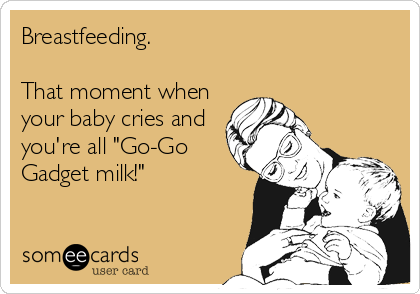 5 to 16 years have shown that these jumps coincide in time with changes in brain waves, which can be established using measurements. In infants up to 1.5 years old, 7 age periods were also known, when ...
5 to 16 years have shown that these jumps coincide in time with changes in brain waves, which can be established using measurements. In infants up to 1.5 years old, 7 age periods were also known, when ...
how to teach a child to fall asleep on their own
Complain
October 27, 2010 12:10 pm at Personal journal
The method of the Spanish doctor Estiville (SPOKNO LAANNA). Retelling by Polina Gelfreikh. What to do if your baby starts to burst into tears as soon as you say it's time for bed? What to do if your baby wakes up 5-10 times a night? What to do if you think that the child sleeps too much or too little? The answers to all these questions are given in his book by the Spanish doctor Estiville, a specialist in sleep disorders. All examples in this book are taken from real life. The author of the book is a renowned professor at the Barcelona Center for Research and Treatment of Sleep Disorders. Chapter 1 Introduction The child does not sleep, so we do not sleep either. What happens to those who don't get enough sleep? … nine0003 10 31172790
Chapter 1 Introduction The child does not sleep, so we do not sleep either. What happens to those who don't get enough sleep? … nine0003 10 31172790
How to teach your baby to sleep!
Complain
18 February 2011 01:07 at The method of the Spanish doctor Estiville, described in the book "SLEEP QUIETLY" (FATE LA NANNA). Retelling by Polina Gelfreich. What to do if your baby starts to burst into tears as soon as you say it's time for bed? What to do if your baby wakes up 5-10 times a night? What to do if you think that the child sleeps too much or too little? The answers to all these questions are given in his book by the Spanish doctor Estiville, a specialist in sleep disorders. All examples in this book are taken from real life. The author of the book is a renowned professor at the Barcelona Center for Research and Treatment of Sleep Disorders. Chapter 1 Introduction The child does not sleep, respectively, we do not sleep either. What happens to those who are not enough…
What happens to those who are not enough…
The Esteville method or how to teach a child to sleep (unfortunately it did not work out briefly)
Complain
10 October 2011 21:25 at Personal journal
Personal journal
What happens to those who don't get enough sleep? A baby is not a machine, and when you are discharged from the hospital, you are not given instructions for it, as, for example, when buying a washing machine. Then everyone starts giving advice to parents (relatives, friends, neighbors, etc.), especially if they hear the baby crying. Many say: "We must wait out the first months, then she will sleep like all children, where will she go." Many come up with reasons: at first he does not sleep, because he is too small, then because of his tummy, then because of his teeth, etc. Some give advice: "Leave crying, in the end he will calm down and fall asleep." Parents come up with all sorts of individual methods: take to .



